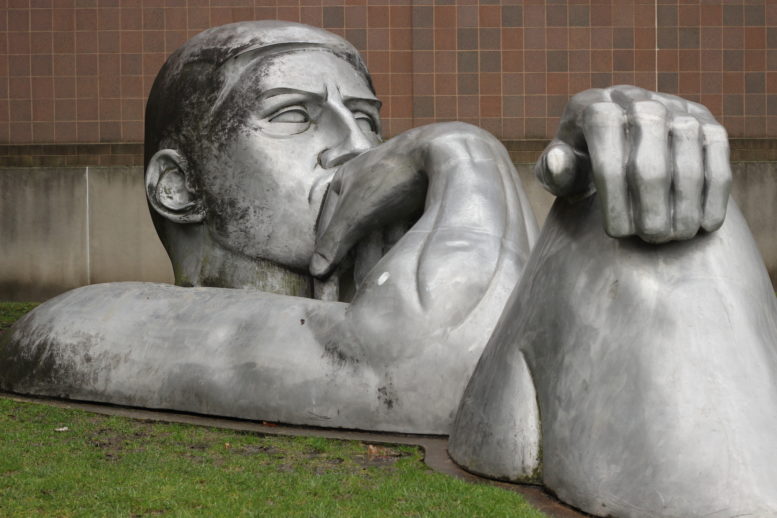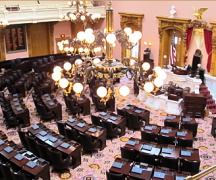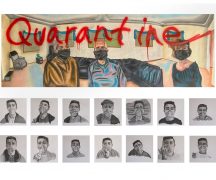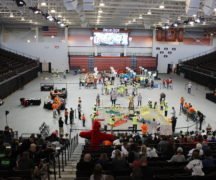By DAVID DUPONT
BG Independent News
About 15 years ago a scholar friend of Bowling Green State University’s Vice President for Research and Economic Engagement Michael Ogawa visited campus to give a talk about pandemics.
The Center for Disease Control scientist’s presentation scared both Ogawa and his children. “I never thought this would happen.” Now it has. It seems “surreal,” Ogawa said.
These are historic times that will change the fabric of society, Ogawa said. That presents many research opportunities for faculty.
Last week, Ogawa convened an open online meeting that attracted more than 80 faculty members interested in exploring the possibilities for research related to the pandemic.
The federal CARES Act is providing $1.8 billion in a range of fields from $945 million to the National Institute for Health to $75 million for the National Endowment for Humanities, and including $300 million for the Department of Education to study innovative teaching methods.
BGSU faculty members are already engaged in studying various aspects of the coronavirus pandemic.
Dr. Xiaohong Tan, an assistant professor of chemistry, received expedited funding to study novel molecules that inhibit the coronavirus from infiltrating human cells.
Wendy Manning, director of the Center for Family and Demographic Research and co-director of the National Center for Family and Marriage Research, is part of a team led by fellow sociologist Peggy Giordano that is looking at compliance to social distancing. That project had a leg up because this survey builds on ongoing research. “We had 20 years of longitudinal data to offer,” Manning said.
Also, Manning and a colleague from Ohio State were already working on a large-scale survey for Gallup when the pandemic hit. They decided to rework it to focus on COVID-19. They didn’t get more funding to do this, Manning said, but they are planning to seek another grant to revisit the data in a year to see what worked and what didn’t in promoting actions to protect against the spread of the coronavirus that causes COVID-19.
Mary-Jon Ludy, interim chair of Public and Allied Health, and colleagues from Michigan State and Ireland, are studying diet, physical activity, and how stress affects those. They decided to add COVID-19 questions to their survey. Through students and other colleagues, they added to Malaysia and Netherlands to the study, and possibly China. That international scope helps set the study apart, Ludy said.
Jinha Lee, also from Public and Allied Health, and Jong Kwan “Jake” Lee, of Computer Science, are working on securing data from South Korea about its approach to combating the virus.
BGSU, Jinha Lee said, would be the first U.S. university to get access to that data.
Steve Cady, Director of the Institute of Organizational Effectiveness, along with Jerry Schnepp, director of the Collab Lab and professor in Visual Communications Technology, “jumped in,” Cady said, to study how their colleagues made the sudden switch to emergency remote teaching in mid-March.
They are looking at what technology and approaches worked or didn’t work.
Cady is also tapping into two other sets of data. Students in a hybrid Master of Business Administration program and Junior Achievement students whose project was moved online.
Cady offered some preliminary findings.
When surveyed, 75 percent of faculty said their online teaching was not as effective as face-to-face while 10 percent said it was more effective and 14 percent said it was just as effective.
The master’s program includes a 20-hour residency that this year had to be delivered online. Of the students in the program, 56 percent said the online residency was not as effective as face to face, while 43 percent said it was just as effective. Still, 93 percent were satisfied with the program, and 80 percent said it didn’t matter to them what the mode of delivery was while 20 percent said they preferred the residency be offered in person.
He also found that working online increased students confidence with working with technology.
Jake Lee said that he and others have created a Microsoft Teams page to help faculty members keep in touch with what they are working on related to COVID-19.
Trent Buskirk, chair of applied statistics and operations, said that the university has to make sure it has the infrastructure that allows faculty to take advantage of research opportunities.
He said he’d tried to secure data from Twitter but was turned down because he didn’t have the place to store the terabytes of information.
The university should create a needs assessment of what it is lacking, he said.
Ogawa said this week that he’s bringing together a small faculty group to develop and present such an assessment





